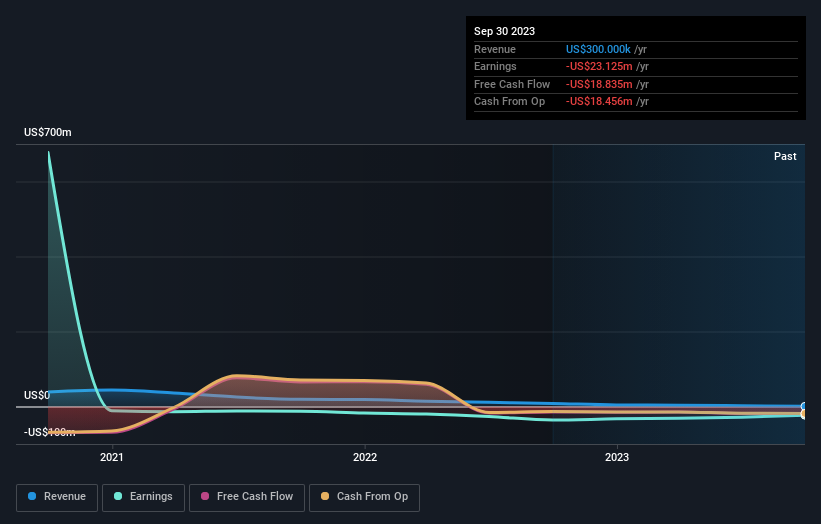XBiotech Inc.'s (NASDAQ:XBIT) top owners are retail investors with 44% stake, while 44% is held by insiders
Key Insights
XBiotech's significant retail investors ownership suggests that the key decisions are influenced by shareholders from the larger public
A total of 7 investors have a majority stake in the company with 50% ownership
A look at the shareholders of XBiotech Inc. (NASDAQ:XBIT) can tell us which group is most powerful. And the group that holds the biggest piece of the pie are retail investors with 44% ownership. Put another way, the group faces the maximum upside potential (or downside risk).
Individual insiders, on the other hand, account for 44% of the company's stockholders. Institutions often own shares in more established companies, while it's not unusual to see insiders own a fair bit of smaller companies.
In the chart below, we zoom in on the different ownership groups of XBiotech.
Check out our latest analysis for XBiotech
What Does The Institutional Ownership Tell Us About XBiotech?
Institutional investors commonly compare their own returns to the returns of a commonly followed index. So they generally do consider buying larger companies that are included in the relevant benchmark index.
XBiotech already has institutions on the share registry. Indeed, they own a respectable stake in the company. This suggests some credibility amongst professional investors. But we can't rely on that fact alone since institutions make bad investments sometimes, just like everyone does. If multiple institutions change their view on a stock at the same time, you could see the share price drop fast. It's therefore worth looking at XBiotech's earnings history below. Of course, the future is what really matters.
XBiotech is not owned by hedge funds. Looking at our data, we can see that the largest shareholder is the CEO John Simard with 22% of shares outstanding. Thomas Gut is the second largest shareholder owning 13% of common stock, and W. McKenzie holds about 8.5% of the company stock. Interestingly, the third-largest shareholder, W. McKenzie is also a Member of the Board of Directors, again, indicating strong insider ownership amongst the company's top shareholders.
We also observed that the top 7 shareholders account for more than half of the share register, with a few smaller shareholders to balance the interests of the larger ones to a certain extent.
While it makes sense to study institutional ownership data for a company, it also makes sense to study analyst sentiments to know which way the wind is blowing. Our information suggests that there isn't any analyst coverage of the stock, so it is probably little known.
Insider Ownership Of XBiotech
While the precise definition of an insider can be subjective, almost everyone considers board members to be insiders. Management ultimately answers to the board. However, it is not uncommon for managers to be executive board members, especially if they are a founder or the CEO.
Most consider insider ownership a positive because it can indicate the board is well aligned with other shareholders. However, on some occasions too much power is concentrated within this group.
Our information suggests that insiders maintain a significant holding in XBiotech Inc.. Insiders have a US$86m stake in this US$196m business. We would say this shows alignment with shareholders, but it is worth noting that the company is still quite small; some insiders may have founded the business. You can click here to see if those insiders have been buying or selling.
General Public Ownership
The general public, who are usually individual investors, hold a 44% stake in XBiotech. While this group can't necessarily call the shots, it can certainly have a real influence on how the company is run.
Next Steps:
It's always worth thinking about the different groups who own shares in a company. But to understand XBiotech better, we need to consider many other factors. To that end, you should learn about the 3 warning signs we've spotted with XBiotech (including 2 which are potentially serious) .
Of course this may not be the best stock to buy. So take a peek at this free free list of interesting companies.
NB: Figures in this article are calculated using data from the last twelve months, which refer to the 12-month period ending on the last date of the month the financial statement is dated. This may not be consistent with full year annual report figures.
Have feedback on this article? Concerned about the content? Get in touch with us directly. Alternatively, email editorial-team (at) simplywallst.com.
This article by Simply Wall St is general in nature. We provide commentary based on historical data and analyst forecasts only using an unbiased methodology and our articles are not intended to be financial advice. It does not constitute a recommendation to buy or sell any stock, and does not take account of your objectives, or your financial situation. We aim to bring you long-term focused analysis driven by fundamental data. Note that our analysis may not factor in the latest price-sensitive company announcements or qualitative material. Simply Wall St has no position in any stocks mentioned.


